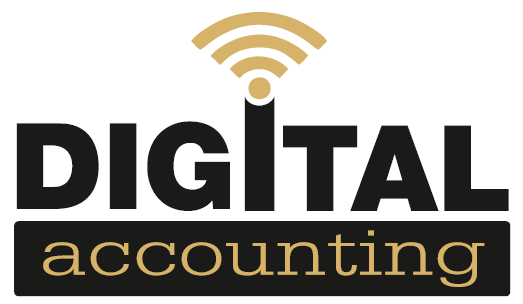On 26th March, Chancellor Rachel Reeves delivered her first Spring Statement against a challenging economic backdrop. With the UK’s growth forecast for 2025 downgraded from 2% to 1% by the Office for Budget Responsibility, the announcement came with a strong focus on navigating economic uncertainty, including increased defence spending and welfare reform.
But beyond the headlines, there were several important takeaways for small business owners and landlords. While there were no surprises on the previously announced rise in National Insurance contributions for employers, the Spring Statement included a number of updates that could impact the way small businesses operate and plan for the year ahead.
Here’s a breakdown of the key points from the Chancellor’s announcement – and what they mean for you.
Making Tax Digital for Income Tax: New Timings and Exemptions Confirmed
The Spring Statement brought further clarity on the rollout of Making Tax Digital (MTD) for Income Tax. Most self-employed individuals and landlords with qualifying income over £20,000 will now be required to comply with MTD rules from April 2028. This builds on the Autumn 2024 Budget’s promise to include these groups “by the end of this Parliament”- and now confirms a specific date, providing some much-needed certainty for affected taxpayers.
Importantly, the timetable remains unchanged for those with higher incomes: those earning over £50,000 will still be required to join MTD from April 2026, while those earning over £30,000 must be compliant by April 2027. However, there were no new updates on when partnerships or limited companies will be brought into MTD for Income Tax or Corporation Tax respectively.
As part of the Chancellor’s wider efforts to “close the tax gap,” the Spring Statement also announced tougher penalties for late payments. From April 2025, late payment penalties for both MTD for VAT and MTD for Income Tax will increase. Currently, VAT-registered businesses face a penalty structure based on how many days late the payment is:
- 0–14 days late: no penalty
- 15–29 days: 2% of the amount outstanding at day 15
- 30+ days: 2% of the amount outstanding at day 15 + 2% at day 30
From 6th April 2025, these penalties will rise to:
- 0–14 days late: no penalty
- 15–29 days: 3% of the amount outstanding at day 15
- 30+ days: 3% of the amount outstanding at day 15 + 3% at day 30
On top of that, a 10% annualised penalty will be charged on the outstanding balance. These changes will also apply to MTD for Income Tax submissions, which means most self-employed individuals and landlords earning over £50,000 will need to factor these penalties into their compliance planning from April 2026.
The government also confirmed new exemptions for certain taxpayer groups who face significant barriers to using MTD. These include individuals with a Power of Attorney, non-UK resident entertainers or sportspeople with no other UK income, and taxpayers for whom HMRC is unable to provide a digital service. Additional exemptions apply for the duration of this Parliament to specific groups, including ministers of religion, Lloyd’s Underwriters, and those receiving the Blind Persons’ or Married Couples’ Allowance.
In a move to streamline tax reporting, all MTD users will now be required to submit their Final Declaration- essentially the end-of-year tax return- through MTD-compatible software.
At Digital Accounting, we’re fully prepared to guide our clients through the upcoming MTD changes. If you’re a business owner and unsure how these updates affect you, or you need help getting MTD-compliant, our team is here to support you every step of the way – get in touch with us today.
No Changes to Employers’ National Insurance Plans
Small business owners hoping for a rethink on the upcoming National Insurance (NI) changes may be disappointed, as the Chancellor made no new announcements on employer NI or tax rates in the Spring Statement.
As confirmed in the Autumn Budget, from 6th April, employers will begin paying NI on employees’ earnings above £5,000, subject to the Employment Allowance. The employers’ NI rate will also rise from 13.8% to 15%. While the Employment Allowance will increase to £10,500, the previous upper eligibility threshold of £100,000 will be removed as originally planned.
In addition, previously announced changes to the National Living Wage and National Minimum Wage will come into effect in April as scheduled.
If you’re unsure how these changes will impact your payroll or want to plan ahead for rising employment costs, our team at Digital Accounting can help you stay compliant and financially prepared – get in touch to speak with us.
High Income Child Benefit Charge to Be Collected Through PAYE from 2025
Reporting and paying the High Income Child Benefit Charge (HICBC) is set to become easier for many employed parents and carers. Currently, individuals earning over £60,000 who receive Child Benefit—or whose partner does—are required to register for Self Assessment in order to pay the charge.
However, from summer 2025, HMRC will introduce a simpler process that allows employees to report their Child Benefit and pay the HICBC directly through PAYE. This means many taxpayers will no longer need to file a Self Assessment tax return solely for this purpose.
If you think the HICBC applies to you and you’re unsure how these changes might impact your tax responsibilities, Digital Accounting can help. We’re here to ensure you’re fully informed and compliant ahead of the upcoming changes.
HMRC given extra powers and funding to tackle tax evasion
As part of its continued effort to close the tax gap, the government has announced a significant increase in funding and powers for HMRC to strengthen its fight against tax evasion and fraud.
This includes boosting HMRC’s debt management operations through automation and a new pilot scheme aimed at recovering long-standing unpaid debts. The government also plans to recruit an additional 500 compliance staff and 600 debt management officers, while investing £87 million into partnerships with private debt collection agencies.
A new whistleblower reward scheme will launch later this year, offering financial incentives to individuals who report tax non-compliance. Inspired by successful models in the US and Canada, the scheme will reward informants with a percentage of the tax recovered, targeting everything from large corporate tax avoidance to offshore schemes.
In addition, HMRC will collaborate with Companies House and the Insolvency Service to crack down on ‘phoenix companies’—businesses that deliberately go insolvent to avoid tax or debt and re-emerge under a new name. The joint plan includes stronger enforcement measures, such as more upfront payment demands, holding directors personally liable for unpaid taxes, and expanding the range of sanctions available.
At Digital Accounting, we help business owners stay on the right side of tax law. If you’re unsure how these changes might affect your company, or you’d like proactive support with compliance, get in touch with our team today.
For more detail on all the changes announced in the Spring Statement, check out the government’s full report.



